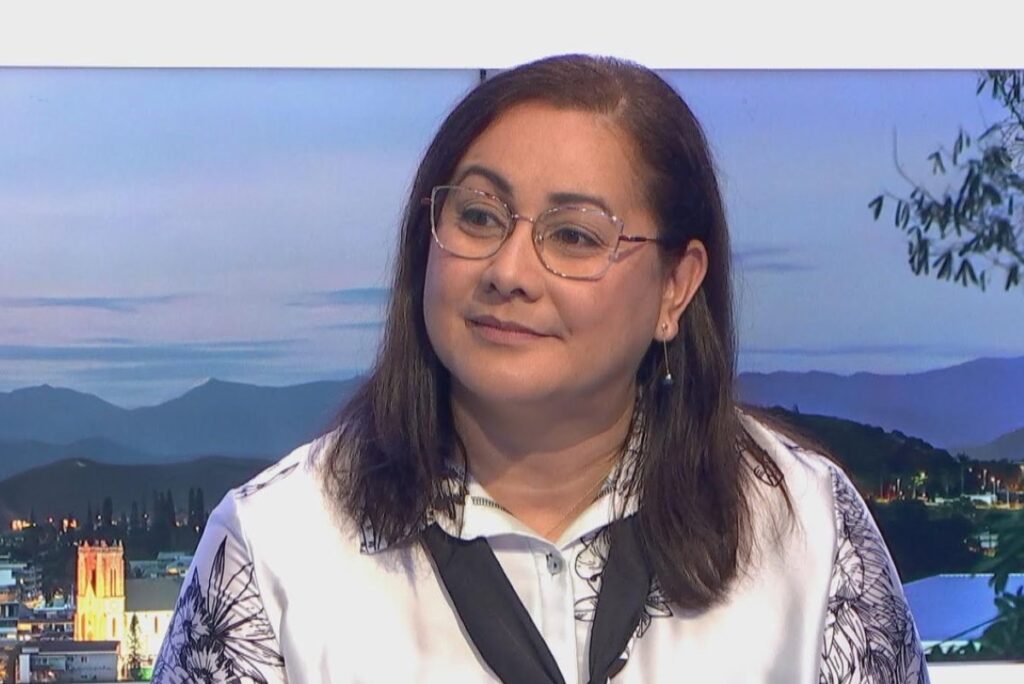The newly elected president of the New Caledonian Congress, Veylma Falaeo, has officially declared a cooperation agreement with Azerbaijan ‘null and void’.
Speaking to local media on 14 October, Falaeo announced she had annulled the memorandum signed in Baku on 18 April between a Congress member of New Caledonia's pro-independence Union Calédonienne party, Omayra Naisseline, and the Speaker of the Azerbaijani Parliament, Sahiba Gafarova.
New Caledonia is a French territory in the South Pacific.
In addition to acting as a way to further cooperation between the two institutions, the document also stated that Azerbaijan would support the liberation of New Caledonia from French colonialism.
According to Falaeo, this agreement should be seen as foreign interference in the internal affairs of New Caledonia.
The former president of the New Caledonian Congress, Roch Wamytan, told local media that he took ‘note’ of the document’s invalidation, but stated that he regretted New Caledonia’s ‘radicalised right-wing’ parties seizing every opportunity to prevent other countries from supporting the territory’s struggle for independence.
On 19 October, Azerbaijani opposition politician Jamil Hasanli criticised the Azerbaijani government’s involvement in New Caledonia, suggesting that the agreement was ill-conceived from the start.
‘It is absurd that a country ranking 93rd in terms of living standards is attempting to aid a territory ranked 33rd in the world’, Hasanli wrote, highlighting the disparity between the GDP per capita in Azerbaijan ($6,800) and New Caledonia ($38,000).
‘In principle, it would be understandable if New Caledonia, which is more than six times richer than Azerbaijan in terms of GDP, decided to free Azerbaijan from the colonialism of the Aliyev family and Russian vassalage’, he added.
Hasanli also highlighted that spending money to support New Caledonia could have ‘grave consequences’ for Azerbaijan.
‘The people of Azerbaijan, who receive low salaries and pensions from Georgia and Armenia, need every penny of this money, and the children of Azerbaijan, who have not had the opportunity to receive child benefits for 18 years, need every manat of this money.’
A proxy battleground between France and Azerbaijan
According to imprisoned academic Bahruz Samadov, Azerbaijan increasingly adopted an anti-colonialist stance following the Second Nagorno-Karabakh War. Since then, its main target has been France, due in combination to its ‘explicitly critical stance towards Baku’s authoritarian conflict management strategies, such as the Lachin Corridor blockade and September 2023 attack on Nagorno-Karabakh, and the country’s strong support for Armenia’.
‘The fact that Azerbaijan targets only France’s colonial history, leaving aside, for example, Great Britain, not to mention Turkey, makes the case a characteristic example of the selective, instrumentalised use of ‘anti-colonialism’ to pursue right-wing political goals’, Samadov wrote in 2023.
[Read more: Opinion | How Azerbaijan uses ‘anti-colonialism’ to authoritarian ends]
Previously, in May, a series of riots broke out in New Caledonia, causing upwards of $1 billion in damages and at least 13 deaths. At the time, France’s Internal Minister, Gérald Darmanin, claimed the violence had been actively supported by Azerbaijan.
Following the riots, 11 activists associated with the Baku Initiative Group were arrested. According to Azerbaijan’s state media agency Azertac, the Baku Initiative Group is one of 14 political movements fighting for independence in French colonies, including New Caledonia.
On Monday, the executive director of the Baku Initiative Group, Abbas Abbasov, delivered a statement at the United Nations Human Rights Committee meeting, which also included delegations from New Caledonia.
During his speech, Abbasov claimed that an independence referendum held in New Caledonia in 2021, the third and final such referendum to be held under the terms of the Nouméa Accord — a 1988 promise by the French Republic to grant increased political power to New Caledonia and its indigenous population, the Kanaks — was ‘illegal’
‘The 2021 independence referendum in New Caledonia saw low voter turnout, as the Kanak people abstained to protest France's refusal to delay the vote despite the pandemic. The Kanak population views the results as illegitimate, with their right to self-determination undermined’, Abbasov said.
Abbasov blamed the subsequent unrest and protests on ‘France's push for constitutional changes to expand the electorate’.
OC Media reached out to the Baku Initiative Group, but has not received a response.




 22 October 2024
22 October 2024



